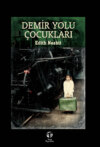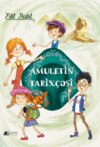Kitabı oku: «Oswald Bastable and Others», sayfa 9
Of course, you and I know that every word of the story is true.
THE CHARMED LIFE; OR, THE PRINCESS AND THE LIFT-MAN
There was once a Prince whose father failed in business and lost everything he had in the world – crown, kingdom, money, jewels, and friends. This was because he was so fond of machinery that he was always making working models of things he invented, and so had no time to attend to the duties that Kings are engaged for. So he lost his situation. There is a King in French history who was fond of machinery, particularly clock-work, and he lost everything too, even his head. The King in this story kept his head, however, and when he wasn't allowed to make laws any more, he was quite contented to go on making machines. And as his machines were a great deal better than his laws had ever been, he soon got a nice little business together, and was able to buy a house in another kingdom, and settle down comfortably with his wife and son. The house was one of those delightful villas called after Queen Anne (the one whose death is still so often mentioned and so justly deplored), with stained glass to the front-door, and coloured tiles on the front-garden path, and gables where there was never need of gables, and nice geraniums and calceolarias in the front-garden, and pretty red brick on the front of the house. The back of the house was yellow brick, because that did not show so much.
Here the King and the Queen and the Prince lived very pleasantly. The Queen snipped the dead geraniums off with a pair of gold scissors, and did fancy-work for bazaars. The Prince went to the Red-Coat School, and the King worked up his business. In due time the Prince was apprenticed to his father's trade; and a very industrious apprentice he was, and never had anything to do with the idle apprentices who play pitch and toss on tombstones, as you see in Mr. Hogarth's picture.
When the Prince was twenty-one his mother called him to her. She put down the blotting-book she was embroidering for the School Bazaar in tasteful pattern of stocks and nasturtiums, and said:
'My dear son, you have had the usual coming-of-age presents – silver cigar-case and match-box; a handsome set of brushes, with your initials on the back; a Gladstone bag, also richly initialled; the complete works of Dickens and Thackeray; a Swan fountain-pen mounted in gold; and the heartfelt blessing of your father and mother. But there is still one more present for you.'
'You are too good, mamma,' said the Prince, fingering the nasturtium-coloured silks.
'Don't fidget,' said the Queen, 'and listen to me. When you were a baby a fairy, who was your godmother, gave you a most valuable present – a Charmed Life. As long as you keep it safely, nothing can harm you.'
'How delightful!' said the Prince. 'Why, mamma, you might have let me go to sea when I wanted to. It would have been quite safe.'
'Yes, my dear,' said the Queen, 'but it's best to be careful. I have taken care of your life all these years, but now you are old enough to take care of it for yourself. Let me advise you to keep it in a safe place. You should never carry valuables about on your person.'
And then she handed the Charmed Life over to him, and he took it and kissed her, and thanked her for the pretty present, and went away and hid it. He took a brick out of the wall of the villa, and hid his Life behind it. The bricks in the walls of these Queen Anne villas generally come out quite easily.
Now, the father of the Prince had been King of Bohemia, so, of course, the Prince was called Florizel, which is their family name; but when the King went into business he went in as Rex Bloomsbury, and his great patent Lightning Lift Company called itself R. Bloomsbury and Co., so that the Prince was known as F. Bloomsbury, which was as near as the King dared go to 'Florizel, Prince of Bohemia.' His mother, I am sorry to say, called him Florrie till he was quite grown up.
Now, the King of the country where Florizel lived was a very go-ahead sort of man, and as soon as he heard that there were such things as lifts – which was not for a long time, because no one ever lets a King know anything if it can be helped – he ordered one of the very, very best for his palace. Next day a card was brought in by one of the palace footmen. It had on it: 'Mr. F. Bloomsbury, R. Bloomsbury and Co.'
'Show him in,' said the King.
'Good-morning, sire,' said Florizel, bowing with that perfect grace which is proper to Princes.
'Good-morning, young man,' said the King. 'About this lift, now.'
'Yes, sire. May I ask how much your Majesty is prepared to – '
'Oh, never mind price,' said the King; 'it all comes out of the taxes.'
'I should think, then, that Class A … our special Argentinella design – white satin cushions, woodwork overlaid with ivory and inset with pearls, opals, and silver.'
'Gold,' said the King shortly.
'Not with pearls and ivory,' said Florizel firmly. He had excellent taste. 'The gold pattern – we call it the Anriradia – is inlaid with sapphires, emeralds, and black diamonds.'
'I'll have the gold pattern,' said the King; 'but you might run up a little special lift for the Princess's apartments. I dare say she'd like that Argentinella pattern – "Simple and girlish," I see it says in your circular.'
So Florizel booked the order, and the gold and sapphire and emerald lift was made and fixed, and all the Court was so delighted that it spent its whole time in going up and down in the lift, and there had to be new blue satin cushions within a week.
Then the Prince superintended the fixing of the Princess's lift – the Argentinella design – and the Princess Candida herself came to look on at the works; and she and Florizel met, and their eyes met, and their hands met, because his caught hers, and dragged her back just in time to save her from being crushed by a heavy steel bar that was being lowered into its place.
'Why, you've saved my life,' said the Princess.
But Florizel could say nothing. His heart was beating too fast, and it seemed to be beating in his throat, and not in its proper place behind his waistcoat.
'Who are you?' said the Princess.
'I'm an engineer,' said the Prince.
'Oh dear!' said the Princess, 'I thought you were a Prince. I'm sure you look more like a Prince than any Prince I've ever seen.'
'I wish I was a Prince,' said Florizel; 'but I never wished it till three minutes ago.'
The Princess smiled, and then she frowned, and then she went away.
Florizel went straight back to the office, where his father, Mr. Rex Bloomsbury, was busy at his knee-hole writing-table.
He spent the morning at the office, and the afternoon in the workshop.
'Father,' he said, 'I don't know what ever will become of me. I wish I was a Prince!'
The King and Queen of Bohemia had never let their son know that he was a Prince; for what is the use of being a Prince if there's never going to be a kingdom for you?
Now, the King, who was called R. Bloomsbury, Esq., looked at his son over his spectacles and said:
'Why?'
'Because I've been and gone and fallen head over ears in love with the Princess Candida.'
The father rubbed his nose thoughtfully with his fountain pen.
'Humph!' he said; 'you've fixed your choice high.'
'Choice!' cried the Prince distractedly. 'There wasn't much choice about it. She just looked at me, and there I was, don't you know? I didn't want to fall in love like this. Oh, father, it hurts most awfully! What ever shall I do?'
After a long pause, full of thought, his father replied:
'Bear it, I suppose.'
'But I can't bear it – at least, not unless I can see her every day. Nothing else in the world matters in the least.'
'Dear me!' said his father.
'Couldn't I disguise myself as a Prince, and try to make her like me a little?'
'The disguise you suggest is quite beyond our means at present.'
'Then I'll disguise myself as a lift attendant,' said Florizel.
And what is more, he did it. His father did not interfere. He believed in letting young people manage their own love affairs.
So that when the lift was finished, and the Princess and her ladies crowded round to make the first ascent in it, there was Florizel dressed in white satin knee-breeches, and coat with mother-o'-pearl buttons. He had silver buckles to his shoes, and a tiny opal breast-pin on the lappet of his coat, where the white flower goes at weddings.
When the Princess saw him she said:
'Now, none of you girls are to go in the lift at all, mind! It's my lift. You can use the other one, or go up the mother-of-pearl staircase, as usual.'
Then she stepped into the lift, and the silver doors clicked, and the lift went up, just carrying her and him.
She had put on a white silky gown, to match the new lift, and she, too, had silver buckles on her shoes, and a string of pearls round her throat, and a silver chain set with opals in her dark hair; and she had a bunch of jasmine flowers at her neck. As the lift went out of sight the youngest lady-in-waiting whispered:
'What a pretty pair! Why, they're made for each other! What a pity he's a lift-man! He looks exactly like a Prince.'
'Hold your tongue, silly!' said the eldest lady-in-waiting, and slapped her.
The Princess went up and down in the lift all the morning, and when at last she had to step out of it because the palace luncheon-bell had rung three times, and the roast peacock was getting cold, the eldest lady-in-waiting noticed that the Lift-man had a jasmine flower fastened to his coat with a little opal pin.
The eldest lady-in-waiting kept a sharp eye on the Princess, but after that first day the Princess only seemed to go up and down in the lift when it was really necessary, and then she always took the youngest lady-in-waiting with her; so that though the Lift-man always had a flower in his buttonhole, there was no reason to suppose it had not been given him by his mother.
'I suppose I'm a silly, suspicious little thing,' said the eldest lady-in-waiting. 'Of course, it was the lift that amused her, just at first. How could a Princess be interested in a lift-man?'
Now, when people are in love, and want to be quite certain that they are loved in return, they will take any risks to find out what they want to know. But as soon as they are quite sure they begin to be careful.
And after those seventy-five ups and downs in the lift, on the first day, the Princess no longer had any doubt that she was beloved by the Lift-man. Not that he had said a word about it, but she was a clever Princess, and she had seen how he picked up the jasmine flower she let fell, and kissed it when she pretended she wasn't looking, and he pretended he didn't know she was. Of course, she had been in love with him ever since they met, and their eyes met, and their hands. She told herself it was because he had saved her life, but that wasn't the real reason at all.
So, being quite sure, she began to be careful.
'Since he really loves me he'll find a way to tell me so, right out. It's his part, not mine, to make everything possible,' she said.
As for Florizel, he was quite happy. He saw her every day, and every day when he took his place in his lift there was a fresh jasmine flower lying on the satin cushion. And he pinned it into his buttonhole and wore it there all day, and thought of his lady, and of how that first wonderful day she had dropped a jasmine flower, and how he had picked it up when she pretended she was not looking, and he was pretending that he did not know she was. But all the same he wanted to know exactly how that jasmine flower came there every day, and whose hand brought it. It might be the youngest lady-in-waiting, but Florizel didn't think so.
So he went to the palace one morning bright and early, much earlier than usual, and there was no jasmine flower. Then he hid behind one of the white velvet window-curtains of the corridor and waited. And, presently, who should come stealing along on the tips of her pink toes – so as to make no noise at all – but the Princess herself, fresh as the morning in a white muslin frock with a silver ribbon round her darling waist, and a bunch of jasmine at her neck. She took one of the jasmine flowers and kissed it and laid it on the white satin seat of the lift, and when she stepped back there was the Lift-man.
'Oh!' said Candida, and blushed like a child that is caught in mischief.
'Oh!' said Florizel, and he picked up the jasmine and kissed it many times.
'Why do you do that?' said the Princess.
'Because you did,' said the Prince. 'I saw you. Do you want to go on pretending any more?'
The Princess did not know what to say, so she said nothing.
Florizel came and stood quite close to her.
'I used to wish I was a Prince,' he said, 'but I don't now. I'd rather be an engineer. If I'd been a Prince I should never have seen you.'
'I don't want you to be a bit different,' said the Princess. And she stooped to smell the jasmine in his buttonhole.
'So we're betrothed,' said Florizel.
'Are we?' said Candida.
'Aren't we?' he said.
'Well, yes, I suppose we are,' said she.
'Very well, then,' said Florizel, and he kissed the Princess.
'You're sure you don't mind marrying an engineer?' he said, when she had kissed him back.
'Of course not,' said the Princess.
'Then I'll buy the ring,' said he, and kissed her again.
Then she gave him the rest of the jasmine, with a kiss for each star, and he gave her a little keepsake in return, and they parted.
'My heart is yours,' said Florizel, 'and my life is in your hands.'
'My life is yours,' said she, 'and my heart is in your heart.'
Now, I am sorry to say that somebody had been listening all the time behind another curtain, and when the Princess had gone to her breakfast and the Lift-man had gone down in his lift, this somebody came out and said, 'Aha!'
It was a wicked, ugly, disagreeable, snub-nosed page-boy, who would have liked to marry the Princess himself. He had really no chance, and never could have had, because his father was only a rich brewer. But he felt himself to be much superior to a lift-man. And he was the kind of boy who always sneaks if he has half a chance. So he went and told the King that he had seen the Princess kissing the Lift-man in the morning all bright and early.
The King said he was a lying hound, and put him in prison at once for mentioning such a thing – which served him right.
Then the King thought it best to find out for himself whether the snub-nosed page-boy had spoken the truth.
So he watched in the morning all bright and early, and he saw the Princess come stealing along on the tips of her little pink toes, and the lift (Argentinella design) came up, and the Lift-man in it. And the Princess gave him kissed jasmine to put in his buttonhole.
So the King jumped out on them and startled them dreadfully. And Florizel was locked up in prison, and the Princess was locked up in her room with only the eldest lady-in-waiting to keep her company. And the Princess cried all day and all night. And she managed to hide the keepsake the Prince had given her. She hid it in a little book of verses. And the eldest lady saw her do it. Florizel was condemned to be executed for having wanted to marry someone so much above him in station. But when the axe fell on his neck the axe flew to pieces, and the neck was not hurt at all. So they sent for another axe and tried again. And again the axe splintered and flew. And when they picked up the bits of the axe they had all turned to leaves of poetry books.
So they put off the execution till next day.
The gaoler told the snub-nosed page all about it when he took him his dinner of green water and mouldering crusts.
'Couldn't do the trick!' said the gaoler. 'Two axes broke off short and the bits turned to rubbish. The executioner says the rascal has a Charmed Life.'
'Of course he has,' said the ugly page, sniffing at the crusts with his snub-nose. 'I know all about that, but I shan't tell unless the King gives me a free pardon and something fit to eat. Roast pork and onion stuffing, I think. And you can tell him so.'
So the gaoler told the King. And the King gave the snub-nosed page the pardon and the pork, and then the page said:
'He has a Charmed Life. I heard him tell the Princess so. And what is more, he gave it to her to keep. And she said she'd hide it in a safe place!'
Then the King told the eldest lady-in-waiting to watch, and she did watch, and saw the Princess take Florizel's Charmed Life and hide it in a bunch of jasmine. So she took the jasmine and gave it to the King, and he burnt it. But the Princess had not left the Life in the jasmine.
Then they tried to hang Florizel, because, of course, he had an ordinary life as well as a charmed one, and the King wished him to be without any life at all.
Thousands of people crowded to see the presumptuous Lift-man hanged, and the execution lasted the whole morning, and seven brand new ropes were wasted one after the other, and they all left off being ropes and turned into long wreaths of jasmine, which broke into bits rather than hang such a handsome Lift-man.
The King was furious. But he was not too furious to see that the Princess must have taken the Charmed Life out from the jasmine flowers, and put it somewhere else, when the eldest lady was not looking.
And it turned out afterwards that the Princess had held Florizel's life in her hand all the time the execution was going on. The eldest lady-in-waiting was clever, but she was not so clever as the Princess.
The next morning the eldest lady brought the Princess's silver mirror to the King.
'The Charmed Life is in that, your Majesty,' she said. 'I saw the Princess put it in.'
And so she had, but she had not seen the Princess take it out again almost directly afterwards.
The King smashed the looking-glass, and gave orders that poor Florizel was to be drowned in the palace fishpond.
So they tied big stones to his hands and feet and threw him in. And the stones changed to corks and held him up, and he swam to land, and when they arrested him as he landed they found that on each of the corks there was a beautiful painting of Candida's face, as she saw it every morning in her mirror.
Now, the King and Queen of Bohemia, Florizel's father and mother, had gone to Margate for a fortnight's holiday.
'We will have a thorough holiday,' said the King; 'we will forget the world, and not even look at a newspaper.'
But on the third day they both got tired of forgetting the world, and each of them secretly bought a newspaper and read it on the beach, and each rushed back and met the other on the steps of the boarding-house where they were staying. And the Queen began to cry, and the King took her in his arms on the doorstep, to the horror of the other boarders, who were looking out of the windows at them; and then they rushed off to the railway station, leaving behind them their luggage and the astonished boarders, and took a special train to town. Because the King had read in his newspaper, and the Queen in hers, that the Lift-man was being executed every morning from nine to twelve; and though, so far, none of the executions had ended fatally, yet at any moment the Prince's Charmed Life might be taken, and then there would be an end of the daily executions – a very terrible end.
Arrived at the capital, the poor Queen of Bohemia got into a hansom with the King, and they were driven to the palace. The palace-yard was crowded.
'What is the matter?' the King of Bohemia asked.
'It's that Lift-man,' said a bystander, with spectacles and a straw hat; 'he has as many lives as a cat. They tried boiling oil this morning, and the oil turned into white-rose leaves, and the fire under it turned to a white-rose bush. And now the King has sent for Princess Candida, and is going to have it out with her. The whole thing has been most exciting.'
'I should think so,' said the Lift-man's father.
'Of course,' said the bystander in spectacles, 'everyone who has read any history knows that Lift-men don't have charmed lives. But our King never would learn history, so he doesn't see that of course the Lift-man is a Prince disguised. The question is, Will he find out in time? I can't think why the Lift-man doesn't own his Princishness, and have done with it.'
'Perhaps he doesn't know it himself,' said the King of Bohemia.
He gave his arm to his wife, and they managed to squeeze through to the great council hall, where the King of that country sat on his gold throne, surrounded by lords-in-waiting, judges in wigs, and other people in other things.
Florizel was there loaded with chains, and standing in a very noble attitude at one corner of the throne steps. At the other stood the Princess, looking across at her lover with her dear gray eyes.
'Now,' said the King, 'I am tired of diplomacy and tact, and the eldest lady-in-waiting is less of a Sherlock Holmes than I thought her, so let us be straightforward and honest. Have you got a Charmed Life?'
'I haven't exactly got it,' said Florizel. 'My life is not my own now.'
'Did he give it to you?' the King asked his daughter.
'I cannot tell a lie, father,' said the Princess, just as though her name had been George Washington instead of Candida; 'he did give it to me.'
'What have you done with it?'
'I have hidden it in different places. I have saved it; he saved mine once.'
'Where is it?' asked her father, 'as you so justly observe you cannot tell a lie.'
'If I tell you,' said the Princess, 'will you give your Royal word that the execution you have ordered for this morning shall be really the last? You can destroy the object that I have hidden his Charmed Life in, and then you can destroy him. But you must promise me not to ask me to hide his Life in any new place, because I am tired of hide-and-seek.'
All the judges and lords-in-waiting and people felt really sorry for the Princess, for they thought all these executions had turned her brain.
'I give you my Royal word,' said the King upon his throne. 'I won't ask you to hide his Life any more. Indeed, I was against the practice from the first. Now, where have you hidden his Life?'
'In my heart,' said the Princess, brave and clear, so that everyone heard her in the big hall. 'You can't take his Life without taking mine, and if you take mine you may as well take his, for he won't care to go on living without me.'
She sprang across the throne steps to Florizel, and his fetters jangled as she threw her arms round him.
'Dear me!' said the King, rubbing his nose with his sceptre; 'this is very awkward.'
The Princess laughed happily.
'Oh, my clever Princess,' whispered Florizel; 'you're as clever as you're dear, and as dear as you're beautiful.'
There was a silence.
'Well, really,' said the King, 'I don't quite see – '
The father and mother of Florizel had wriggled and wormed their way through the crowd to a front place, and now the father spoke.
'Your Majesty, allow me. Perhaps I can assist your decision.'
'Oh, all right,' said the King upon his throne; 'go ahead. I'm struck all of a heap.'
'You see before you,' said the King of Bohemia, 'one known to the world of science and of business as R. Bloomsbury, inventor and patenter of many mechanical novelties – among others the Patent Lightning Lift – now formed into a company of which I am the chairman. The young Lift-man – whose fetters are most clumsily designed, if you will pardon my saying so – is my son.'
'Of course he's somebody's son,' said the King upon his throne.
'Well, he happens to be mine, and I gather that you do not think him a good enough match for your daughter.'
'Without wishing to hurt your feelings – ' began Candida's father.
'Exactly. Well, know, O King on your throne, and everyone else, that this young Lift-man is no other than Florizel, Prince of Bohemia. I am the King of Bohemia, and this is my Queen.'
As he spoke he took his crown out of his pocket and put it on. His wife took off her bonnet and got her crown out of her reticule and put that on, and Florizel's crown was handed to the Princess, who fitted it on for him, because his hands were awkward with chains.
'Your most convincing explanation alters everything,' said the King upon his throne, and he came down to meet the visitors. 'Bless you, my children! Strike off his chains, can't you? I hope there's no ill-feeling, Florizel,' he added, turning to the Prince; 'you see, an engineer is only an engineer, whereas a Prince is a Prince, be he never so disinherited. Will half an hour from now suit you for the wedding?'
So they were married, and they still live very happily. They will live as long as is good for them, and when Candida dies Florizel will die too, because she still carries his Life in her heart.










